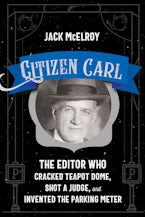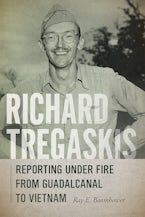- Home
- biography & autobiography
- history
- The Ultimate Protest
The Ultimate Protest
Malcolm W. Browne, Thich Quang Duc, and the News Photograph That Stunned the World
Published by: University of New Mexico Press
Imprint: High Road Books
The Ultimate Protest: Malcolm W. Browne, Thich Quang Duc, and the News Photograph That Stunned the World examines how the most unlikely of war correspondents, Malcolm W. Browne, became the only Western reporter to capture Buddhist monk Thich Quang Duc's horrific self-immolation on June 11, 1963. Quang Duc made his ultimate sacrifice to protest the perceived anti-Buddhist policies of the Catholic-dominated administration of South Vietnam's president Ngo Dinh Diem.
Biographer Ray E. Boomhower's The Ultimate Protest explores the background of the Buddhist crisis in South Vietnam in the spring of 1963 that led to Quang Duc's self-sacrifice as well as the worldwide reaction to Browne's photograph, how it affected American policy toward Diem's government, and the role the image played in the violent coup on November 1, 1963, that deposed Diem and led to his assassination. The book also delves into the dynamics involved in covering the Vietnam War in the early days of the American presence and the pressures placed on the journalists to stop raising doubts about how the war was going. Browne and his colleague David Halberstam shared the 1964 Pulitzer Prize for international reporting for their work in Vietnam.
"Malcolm Browne, the first and longest-serving American correspondent in Vietnam, was long overshadowed by the better-known David Halberstam and Neil Sheehan. But Ray Boomhower's new book finally helps redress the balance. The Ultimate Protest is an engrossing read for anyone interested in how the United States got itself involved in Indochina despite clear warnings by its best journalists who found themselves labeled as 'enemy agents' for reporting the truth."--Fox Butterfield, Pulitzer Prize winner and author of China: Alive in the Bitter Sea
--
"Malcolm Browne was everything a great reporter should be--intrepid, independent, insightful, and ultimately a bit wistful about the human condition. Ray Boomhower has given Malcolm the fine biography he deserved."--Peter L. W. Osnos, author of An Especially Good View: Watching History Happen
"Elegantly written, deeply researched, and fast paced, The Ultimate Protest shines an overdue light on the life and times of one of the first journalists to report critically on America's misadventure in Vietnam and the challenge of gathering news in the face of government evasions and lies--a challenge to reporters as relevant today as it was then. For anyone seeking a better understanding of how great journalism is practiced, this book is must-read."--Thomas D. Herman, director and producer of Dateline-Saigon
"Ray Boomhower paints a fresh and vivid portrait of one of America's most accomplished war correspondents. With meticulous attention to detail, The Ultimate Protest deftly captures the dilemmas that faced journalists during the Vietnam War--and that continue to face reporters in more recent times."--Mark Atwood Lawrence, The End of Ambition: The United States and the Third World in the Vietnam Era
"Boomhower conveys the breadth and depth of an amazing journalist's career and its impact in bearing witness to the Vietnam War. The book serves as a model for future journalists as he balances viewpoints to form a well-rounded picture of Browne and his work."--Jim Willis, author of 100 Media Moments That Changed America
Prologue
Chapter 1. Korea, 1956
Chapter 2. From the Laboratory to the Newsroom
Chapter 3. "Welcome to Viet Nam, Mal"
Chapter 4. The Young Turks
Chapter 5. A Battle and a Crisis
Chapter 6. The Ultimate Protest
Chapter 7. The Raids
Chapter 8. The Coup
Chapter 9. The "Stand-Upper"
Chapter 10. Saigon, 1975
Epilogue
Acknowledgments
Notes
Selected Bibliography
Index
Upcoming Events

Ray Boomhower at Morgenstern’s Books
Friday. April 26, 2024 | 7:30 pm
Morgenstern’s Books | 849 S. Auto Mall Rd., Bloomington, IN 47401
Read more
Ray Boomhower: Independent Bookstore Day Celebration
Saturday. April 27, 2024 | 10:00 am
Eugene and Marilyn Glick Indiana History Center | 450 West Ohio Street, Indianapolis, IN 46202
Read more









